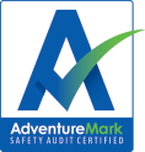MAKE IT EASIER - UNDERSTAND THE RULES
Audits: To make it easier to follow the rules; understand the rules
Being audited and providing evidence to your auditor can be a painful process. We don’t want it to be, and we work hard to make the process as smooth as possible. Bear in mind, we get audited too! The key thing to make an audit easier is to know what the audit is all about.
Here are three questions we are routinely asked:
- How am I supposed to know the difference between a technical expert and a technical adviser?
- Why do I need safety objectives when we are already operating safely?
- Why are you telling me something is a non-conformity but you won’t tell me what I need to do to fix it?
Adventure Activity Operators are subject to the Safety Audit Standard for Adventure Activities. Prior to your audit, we strongly recommend reading the Safety Audit Standard document. If you become more conversant with it, you’ll find definitions for technical advisers, as well as gain greater clarity around having clear objectives that address safety and effect improvement (yes, this is a requirement!). The ability to show compliance in the first instance will keep audit costs as low as possible because your auditor’s time isn’t spent explaining what elements of your operation ‘need’ auditing.
The Adventure Activities Regulations require a Compliance Audit. The easier it is for your auditor to identify that you are compliant with all the requirements (of the Safety Audit Standard), the earlier they can report and complete your audit (keeping expenses to a minimum). Highly compliant operators are also subject to lower levels of surveillance during the certification period.
Auditors are not consultants and are not technical advisors. In fact, to answer one of the questions above, if we tell you how to fix a non-conformity, we become non-compliant ourselves. It doesn’t matter how we feel or what our opinion is on this topic, those are the rules.
To help understand the rules:
- Read association newsletters and industry updates.
- Use nationally recognised qualifications wherever possible.
- Take note and consider observations made during your audits.
- Engage with other respected people in the industry (these are your technical advisers).

